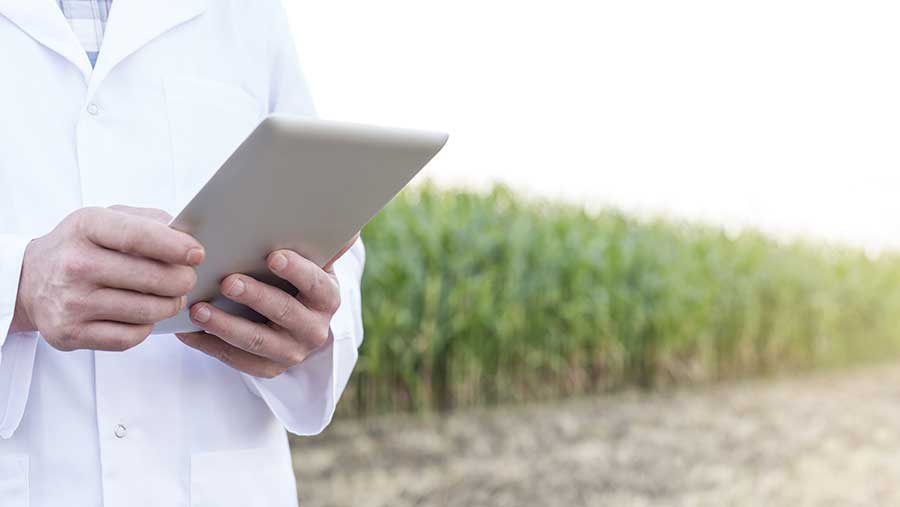Rothamsted to work from gene to field in five-year plan
 © WestEnd61/REX/Shutterstock
© WestEnd61/REX/Shutterstock Rothamsted Research has unveiled an ambitious five-year vision, using three main science portfolios to address the future social, economic and environmental challenges faced by farming.
These will include developing superior crops with key genetic traits, finding better way to control pests, and making farming more productive and efficient.
The world’s oldest agricultural research institute aims to work from gene to field, using its breadth and depth so it aligns research objectives with the realities of farming.
See also: Rothamsted boss on how to get research on farms faster
It will also share its outputs nationally and internationally in a programme of research, as it moves towards “lean science”.

Rothamsted is the world’s oldest agricultural research institute © Rothamsted
Achim Dobermann, director and chief executive of the institute, explained at the launch of its vision the institute’s purpose was to use fresh thinking to bring science and innovation together.
“This combination will benefit farmers and communities worldwide by securing food production and protecting the environment.
“Food for a new generation has to be safe and secure, competitive and sustainable,” he said.
The intention is for Rothamsted to retain its place at the forefront of agricultural science, both in the UK and worldwide, despite unprecedented international uncertainty.
Leading experts

Achim Dobermann © Rothamstead
The institute has some of the world’s leading experts and state-of-the-art specialist science facilities, in two campuses across four sites, with three unique national capabilities.
“With £35m/year of funding and a range of partnerships in place, we are well placed to respond to the pressures driving change around the world and to contribute to solutions,” he said.
Rothamsted will also extend its knowledge sharing and business development opportunities to create new mechanisms and become a vibrant hub for agriculture.
“Our aim is to get farms to achieve at least 80% of their attainable potential,” he added.
Currently, productivity is challenged by biotic threats, resistance, poor soil health and very slow improvements in yield and profitability.
As a result, Rothamsted is introducing three big science portfolios:
- Superior crops – to develop crops with key genetic traits
- Securing productivity – to find smarter ways to control pest, disease and weed threats
- Future agri-food systems – to make farming more productive and efficient
Those portfolios will be used to address the following six key challenges:
Superior crops
- Accelerate improvements in yield, quality and resource efficiency of wheat and other crops
- Discover or design novel traits that improve the nutritional or industrial value of plants
Securing productivity
- Monitor and forecast the spread of pests, weeds and diseases in real time
- Combine genetic, chemical and ecological and agronomic strategies for smart crop protection
Future agri-food systems
- Enable the majority of farmers to achieve at least 80% of attainable performance
- Create agri-food systems with better performance and nutrient value but lower environmental impact
Progress to date
Superior crops is already designing future wheat by looking for the next generation of key traits.
Led by Malcom Hawkesford, it has already been able to supply commercial plant breeders with a toolkit of novel wheat germplasm, containing 96 pre-breeding varieties, for use in their own programmes.
Colleagues are working with genetically modified camelina to produce speciality oils and waxes, as well as with conventional willow varieties to exploit their chemical diversity before they are used as biomass fuel.
In addition, Jonathan Napier has developed genetically modified camelina plants which contain omega-3 fatty acids, so the crop can be used to alleviate some of the pressure on the fish-farming industry to supply rising demand for fish oils.
Securing productivity is working to deliver more targeted and sustainable crop protection, under the leadership of Paul Neve.
The work covers detection, prediction, control and integration – with new technology such as radars being used in conjunction with modelling and biological control methods, to improve the control of weeds, pests and diseases.
Ecosystems are also being investigated, so “natural capital” can be exploited and used to replace some agrochemical use.
Future agri-food systems is testing and developing innovative farming systems, by setting up a network of study farms to understand yield gaps and test solutions that integrate biodiversity with production.
Associated research programmes are exploring ways of improving soil health and structure, as well as raising the nutritional quality of produce.

